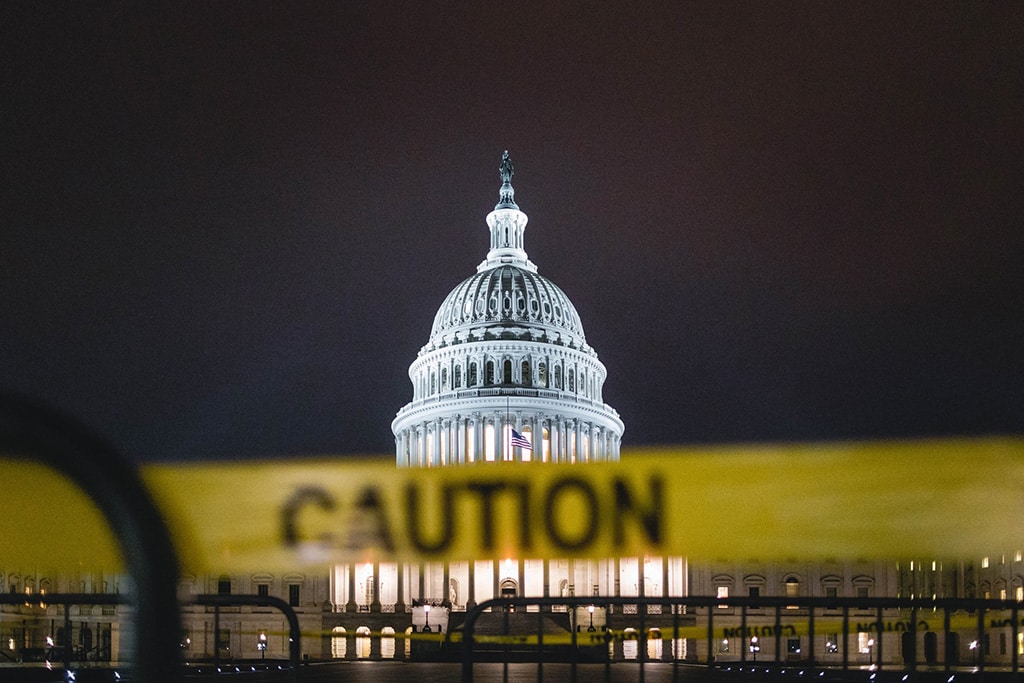
Joe Biden has a long track record in foreign policy, security and intelligence matters with his years in the Senate and eight years serving as Barack Obama’s Vice President. But during the Trump regime the world has changed in various important ways, which the new President will need to take on board; quite apart from the pandemic and his predecessor, it has changed in areas that ought to concern and preoccupy him.
In 2016, when Trump won, there were some 7.4 billion people in the world; now there are more than 7.8 billion, which, put another way, is more than an additional US in terms of population. Extreme poverty has fallen, but is once again rising with the pandemic and its economic fallout. Inequality has risen even more. The planet has continued warming up, despite COVID-19. It is thought that the average global temperature for 2016-20 has been the warmest on record, approximately 1.1ºC above that of 1850-1900. And globalisation has gone into reverse in some respects, although not in others, such as the digital domain, including information flows (data exchange), which amid lockdowns and remote working grew by almost 50% between mid-2019 and mid-2020.
Over the course of these last four years –and this is another concerning issue for Biden and many others– democracy has continued deteriorating around the world. It has been doing so for 14 years running according to the annual Freedom House indexes. The Economist, however, claims that while there were 16 ‘full democracies’ in 2016, now there are 22. Reference to democracy and control these days makes no sense without mentioning connectivity and social media. The number of smart phones has increased in this period. There are currently 3.5 billion users of such devices (44% of the population), compared with 2.5 billion four years ago. In 2016, to give one example of a successful social network, Facebook had 1.8 billion users; half-way through 2020, 1 billion more. Governments have started a movement against the quasi-monopolistic Big Tech companies in 2020, not only in the EU but also in the US, and even China is taking action against its own companies. In the wake of the 2017 Weinstein case, with the #metoo movement and a long legacy of such cases, there has been a global explosion of demands made on the part of women, of feminism. The same is true of protests against racism.
Over the course of Trump’s four years the perception and trustworthiness of the US has suffered in many parts of the world and among its allies and partners, according to the Pew surveys, and even more so over the last year, stemming from the mismanagement of the pandemic. Ratings in various countries are at the lowest level of the last two decades. Biden expects to restore international trust in his country, but this will not be automatic or at no cost. As Anne Applebaum argues, the US ‘is no longer the world’s most admired democracy …is more often perceived as uniquely dysfunctional, and our leaders as notably dangerous’. The EU also has internal problems of democracy, Hungary and Poland being cases in point.
It is not that China has replaced the US, because its international image has suffered a great deal with the pandemic (and it will try to restore it by donating or cheaply selling its vaccines against COVID-19 to developing countries, while for the time being the West is doing little in this regard). China too has changed. Before the pandemic its economy had grown by 27% between 2016 and 2019, and even now is growing at a rate of 2% per year, the first large economy to achieve this. Various forecasts predict that by 2024, when Biden’s mandate comes to an end, China will have become the largest economy in the world, followed by the US and India. It is already a great technological power, and technology determines geopolitics. Even if it is only a figure that does not reflect real innovation, in 2019 China became the worldwide leader in international patent applications, the US having previously occupied first place for more than four decades. And at the end of 2020 it has managed to bring rock samples back from the moon.
China’s official military spending has been growing between 7.2% and 8.1% per annum, maintaining its share of overall government spending. This rate of expansion fell to 6.6% in 2020, probably due to the effects of the pandemic. In 2017, it launched its first totally Chinese-built aircraft carrier. Having fallen somewhat in some of the Obama years, US military spending grew under Trump, from around US$606 billion in 2016 to US$721 billion in 2020. But while the US squandered public money on lost wars –because it is clear that it has lost in Iraq and Afghanistan, as the president elect is finding out– China was investing in technology.
A more assertive and politically authoritarian China under Xi Jinping has continued penetrating the institutions of the general world order, and in simultaneously building another, more regional, order in parallel. Its most recent success was the launch of the Regional Comprehensive Economic Partnership, RCEP, with 15 countries in Asia, whereas Trump torpedoed the Transpacific Partnership, TPP, which had been launched by Obama. Although the cooling of relations with China started with Obama, the great legacy Trump is bequeathing to Biden is a cold war of a new stamp, cold war 2.0, which the new President will need to manage and redirect. Despite Trump’s efforts, however, the US trade deficit with China has not changed, and mutual investments have remained steady. Interdependence continues to be a reality.
With regard to terrorism, ISIS, or Islamic State, has not disappeared, but it has lost the territorial base for its so-called caliphate. Biden is going to find that the prevailing wisdom in Washington is that the US is spending too much on the fight against terrorism –which devours prodigious sums– and not enough on its military rivalry with China (and to a lesser extent with Russia). But jihadist terrorism is still there.
Meanwhile, the US self-absorption under Trump has strengthened the EU (thanks also to Brexit –which in certain respects weakens it– and the reaction to the pandemic). Dealing with the EU without the UK will be different from what Biden remembers from earlier times. There has also been a resurgence among certain ‘medium-sized powers’ who seek to lead the way, at least in regional terms, often led by autocrats/nationalists: the likes of India, Turkey, Brazil, Saudi Arabia, Egypt and for that matter Russia, which seeks to play a more global role. At the same time, amid the pandemic and its economic fallout a trend that predates it has been exacerbated, namely the proliferation of failed states, especially in Africa.
We are not going to see a return to the foreign policy of Obama. Too many things have changed. Those deemed most significant have been sketched out above, but there are others. Biden and his new team, even if they are drawn largely from the Obama Administration, will have to devise a new agenda for the US in a world that has been transformed over these last four years.


